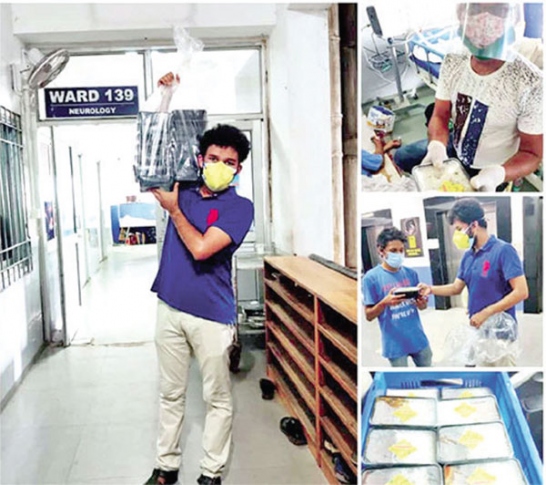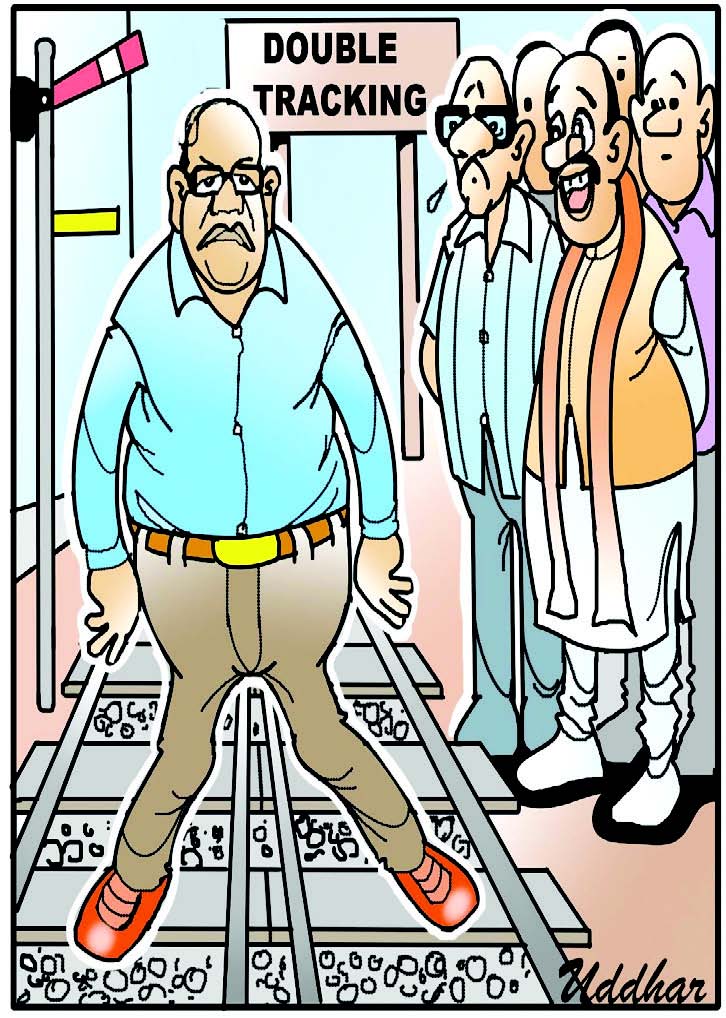
Ajit John;
The pandemic has witnessed a large number of people stepping up to help those who are in isolation or those too sick to move. Many have volunteered their services for twenty four hours absolutely free without expecting anything in return. They have worked long hours in various villages, providing food, transport to the old who live alone and even ensure they take their medications on time. It is very touching to see so many people doing this to ensure people don’t suffer. But perhaps it is time to formalize this effort in the sense; people learn how to do this in a structured manner. This effort if one looks at it involves skills that are utilized in the corporate world. Skills like generating funds to ensure the work continues, negotiating with suppliers and importantly keeping a track of who is sending what and where and how much is coming and going. Perhaps it is time to perhaps include a course like social management in the school and colleges to help people do it better. Shruti Chaturvedi who organised a massive effort to help people in these tough times said it would be a very good idea to help people learn and understand the basic requirements to ensure such an effort moved ahead smoothly. She said “We have around 75 to 100 volunteers who made it possible but I have to admit we went wrong on a couple of occasions. We learned from our mistakes, made adjustments and moved ahead”. She said it would be very good to have a formal system in schools and colleges where such knowledge could be learned. The team she said learned so much that they were able to write a 60 page booklet on how to handle such emergencies. This book was passed around the country and volunteers in places like Lucknow, Chennai and other smaller cities and towns in the country were able to replicate the efforts and save people’s lives. She said they decided to formalize it because they expect a crisis to visit the state at regular intervals because of climate change which was a reality. She said teaching such skills would be very helpful in the future because it was obvious the state did not have a system to handle such situations. Shruti said it was also important that students also learn the importance of being sensitive which was important in such situations. Doing social work she said was looked at differently by different people. Corporates she said looked at this as an opportunity to build their brand and were not really interested in staying the course. Oxygen concentrators were donated by corporate but were now lying unused because it was no longer needed. Politicians on the other hand were very keen on taking credit for work they had nothing to do and this she said was happening even now. She however pointed out that experts in various fields and senior personnel had helped in the creation of the system that was used in Goa. Shruti smiled and said the corporate world may be focused on the profit motive but there enough of people interested in helping the less fortunate Nolan Mascarenhas who has been involved in providing assistance to people during these times said it would be a very good idea to introduce such courses in the curriculum. He felt it was a very good idea because it would help those interested in perhaps taking social service as a full time job in a structured manner. He felt it was important for the person to feel the pain the person who needed help was going through. Experts from outside the system could be called in to throw light on issues as well as how one could go forward. The government he said should keep an open slate and not systemize everything. Perhaps ten marks could be allocated for the subject and students should be encouraged to do something on the ground to score those marks. This would over a period of time help build a group of people who could provide assistance in a crisis at a minutes’ notice. Dyanand MS Dean of Goa Business School said many business schools were involved in activities that assisted society. He felt it was an interesting idea to do something like this. He said the National Social Service was present at all colleges all over the country. He said it was a scheme which did not have an official syllabus because if that was the case then there would have to be a syllabus, exams and everything that came along with it. This he felt would not promote social service in any way in the country. This he said was something which had to be performed as a duty which the NSS scheme which was well entrenched ensured. He said he understood the requirement of certain skills that were required in social service but he felt it was such a vast area and it covered psychology, sociology, finance, marketing and now even covered data science. He said “There are skills that are required but I doubt if a subject could be part of the system. Perhaps the NSS could be revamped, looking at skills which can be imparted. These are life skills like negotiating better. All this is present and what is required is a bit of a nudge”. Perhaps something could be done at some level to ensure those interested in devoting their life to social work can learn skills that will help themselves and society.
